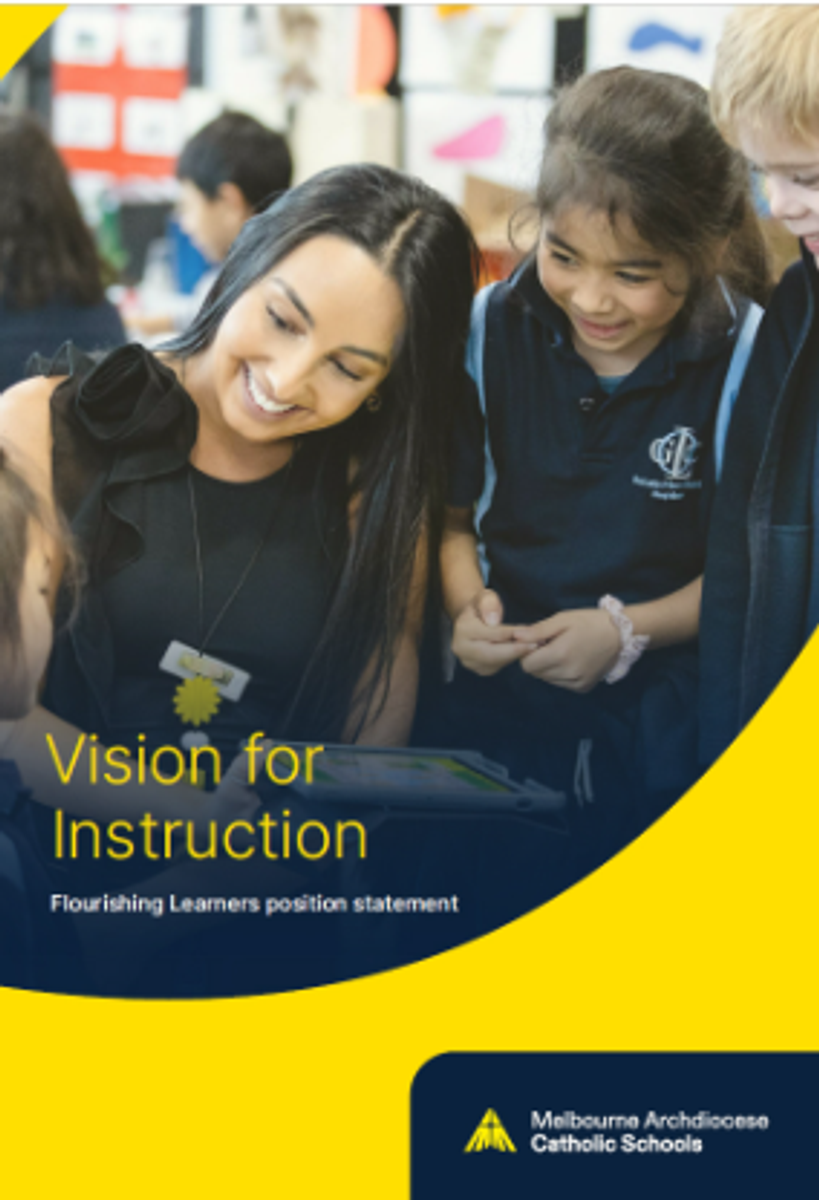Weekes' Weekly News
Learning, growing and celebrating together...

Weekes' Weekly News
Learning, growing and celebrating together...
Dear Sacred Heart Kew Families,
You’ve heard us speak of ‘MACS’ - not to be mistaken for the Golden Arches…
You may have seen the advertisements and or billboards late last year or early this year, promoting Melbourne Archdiocese Catholic Schools (MACS), who we are governed by. These advertisements and promotional material have been a number of years in the making and offer families a glimpse of what life and learning looks like in Catholic schools.
There are also some documents that outline what MACS schools' offer (which also, have been a number of years in the making). These documents are guided by targeted research on how students learn, as well as studies of the most successful teachers, including the use of evidenced-based 'best' practices. These documents include:
MACS 2030: Forming Lives to Enrich the World
Purpose: Forming lives of faith, hope and love in the light of Jesus Christ
Vision: Every student is inspired and enabled to flourish and enrich the world
MACS strategy includes four strategic themes around which they will organise and structure their programs.
Flourishing Learners position statement ‘Vision for Instruction’
Earlier this year, MACS launched its Flourishing Learners position statement ‘Vision for Instruction. If you're interested in reading more, please click on the link below.
https://www.macs.vic.edu.au/Our-Schools/Curriculum-Learning-Programs/Vision-for-Instruction.aspx
Vision for Instruction is a key document underpinning the MACS 2030 strategic plan, and is firmly grounded in the evidence of how students learn most effectively and efficiently, offering explicit guidance for MACS schools on instructional best practice.
Here is an extremely simplified version of the why, the what and the how…
The MACS 2030: Forming Lives to Enrich the World (MACS 2030) strategic plan calls all MACS schools to come together in common purpose and vision to make the most of what a Catholic education has to offer, so we can have the greatest and most distinctive impact in our classrooms, staff rooms and school communities. We will provide an outstanding education, focused on the formation of the whole person, that has the intellectual, practical and moral excellence of learners at its heart. We will aim to deliver the best educational outcome for every student. To achieve this, we are committed to evidence-based instruction and the active promotion of equity and excellence. As part of the Flourishing Learners strategic theme, we aim to deliver the best educational outcome for every student across the breadth of the Victorian curriculum.
The following evidence-based practices are derived from research on how students learn as well as studies of the most successful teachers. These general high-impact practices are designed to ensure MACS students flourish in our classrooms.
Coherent, knowledge-rich teaching and learning programs
Students need a broad range of knowledge and skills to have a strong foundation of information across the whole curriculum that will benefit them beyond their school years. Coherent and deliberate planning of knowledge taught and sequencing of tasks has been shown to positively impact student learning. Tasks that build upon each other and are deployed based on student prior learning are the most effective (Wexler 2020).
Explicit instruction model
Effective teachers design lessons that begin with teacher-guided instruction and gradually shift responsibility for learning to the student with modelling and guided practice. This leads to student independent practice only after foundational knowledge is established (Clark, Kirschner & Sweller 2012). Explicit instruction is effective across a variety of contexts and for different groups of students (AERO 2022a). Explicit teaching refers to a whole system, not just an episode within a lesson, which means that teaching might look different from one day to the next, building on prior learning. The stages of teaching, from introduction of new content to independent practice, might all occur in one day or may occur over a week or more, depending on the content and the students.
The other evidenced-based practices include:
The implementation approach is designed to enhance the effectiveness of the evidence-based practices outlined in the MACS Vision for Instruction, ensuring a practical translation of the instructional vision into tangible practice. Sustainable school improvement often requires continuous learning and unlearning of practices, and the development of new organisational structures and routines. A structured implementation approach supports schools to do this complex work effectively.
Implementation science research highlights the complexity of the implementation process and reveals the specific practices that can make school-level change journeys more successful. The MACS implementation approach is built on research-informed practices and effective professional learning models.
BUT what does all this mean and look like here at Sacred Heart Kew?
For the most part, you and your child may not notice much change or difference to how school and classroom life has been at our school. There may be subtle changes to our learning program and delivery over time. At Sacred Heart Kew we will build on existing good practice in our school and implement the Vision for Instruction in stages.
For sustainable implementation to occur, teachers need support, resources, time, and the right school environment to be able to enact high-quality teaching and learning approaches. To support teachers, MACS office staff will design and deliver quality resources and effective professional learning to make school-based implementation journeys easier. They will partner with schools and regions to provide comprehensive support for teachers.
It is an exciting time for MACS and Catholic schools in the Melbourne Archdiocese, and, as the title suggests, all these changes in practice and delivery will not happen overnight. In Catholic schools right across Melbourne, we are working towards 2030. By 2030, Melbourne Archdiocese Catholic Schools (MACS) aims to become ‘the benchmark for excellence in teaching and learning, through a coherently integrated, academically competitive and distinctively Catholic educational offering. And, we look forward to playing our part here at Sacred Heart Kew.
Wishing everyone a lovely weekend.
Kind Regards,
Ed Weekes
School Principal



